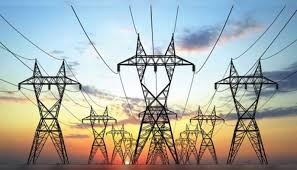


Minister summons DisCos, TCN over worsening power situation
Minister of Power, Mr Adebayo Adelabu has summoned chief executive officers of two Electricity Distribution Companies (DisCos) to a meeting to hold in the coming week over worsening supply situations in their regions.
Those invited to the meeting are chief executive officers of Abuja Electricity Distribution Company (AEDC) and Ibadan Electricity Distribution Company (IBDC).
Also summoned to the meeting is Mr Sule Abdulazeez, Managing Director of the Transmission Company of Nigeria (TCN).
The summon is contained in a letter signed by Mr B.U Mustapha, Director, Distribution Services, Ministry of Power.
The management of other non-performing distribution companies would also be queried over non-performance as reports continue to filter in on the situation in their regions.
The two DisCos have been summoned due to the worsening power supply situation in their regions in spite of improved supply from TCN.
Special Adviser, Strategic Communication and Media Relations at the ministry, Mr Bolaji Tunji stated on Saturday in Abuja that gas shortage notwithstanding, electricity generation had been ramped up to more than 4000mw in recent days.
“The ministry expects power supply to have improved across the country, as opposed to current experience in some regions.
“Findings revealed that some distribution companies were deliberately not taking up power supply from TCN, while some power lines were also damaged by vandals in Abuja, Benin, Port Harcourt and Ibadan regions,” he stated.
He quoted the minister as saying that wilful non-performance by any DisCo could suffice as reason for severe punishment or outright license revocation.
“The minister also directed TCN to immediately begin repair works on damaged transmission towers and power lines to improve power supply in affected regions,” Tunji stated.
He recalled that the minister embarked on supervisory visits to some of the power generating plants in the last few months.
“He was in Kainji Hydropower Plant which will soon embark on an expansion plan to boost its existing 560mw operational capacity.
“He also visited Benue and Taraba to assess infrastructure being constructed to evacuate an additional 30mw from the Kashimbila Hydropower Station to the national grid,’’ he stated.
Only 10mw is currently being evacuated from the Kashimbilla Hydropower Station to the national grid.
The minister was also at Olorunsogo and Omotosho thermal plants in Ogun and Ondo states, respectively and was at Ihvobor and Azura power plants in Edo.
During the visits, he assured that the Federal Government planned to pay part of the outstanding debts owed electricity Generation Companies (GenCos) and gas supply companies.
Tunji stated also that with efforts being made there should soon be succour for electricity consumers nationwide.



